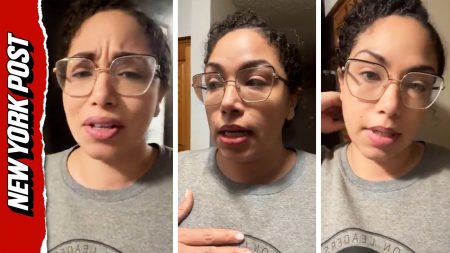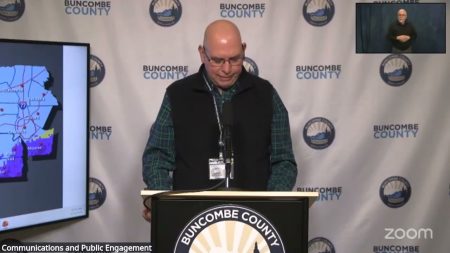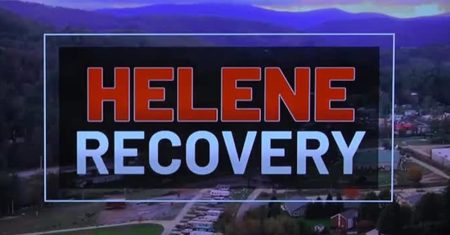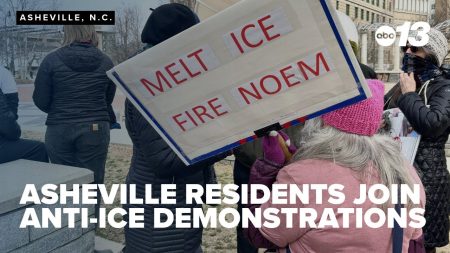Helene Recovery Update: 12-18-2024
Mobile Disaster Recovery Centers (MDRC) provide one-on-one help to North Carolinians affected by Tropical Storm Helene.
The MDRC is available today through Friday, December 20 at the Fairview Public Library, 1 Taylor Road, Fairview, NC. Hours are 8 a.m. – 6 p.m.
Beginning Saturday, December 21 the MDRC will be located at the Weaverville Town Hall 30 Main St., Weaverville, NC. Hours will be 9 a.m.-2 p.m. Saturday, Dec. 21, 8 a.m.-6 p.m. through Monday Dec. 23, and 8 a.m.-noon Tuesday Dec. 24.
North Carolina Disaster Recovery Centers
A Disaster Recovery Center is a one-stop shop to meet with FEMA representatives, apply for FEMA assistance, receive referrals to local assistance, apply with the U.S. Small Business Administration for low-interest disaster loans and more. No appointment is needed.
Centers are open 8 a.m. to 6 p.m. weekdays and 9 a.m. to 2 p.m. Saturdays. Find one near you at FEMA.gov/drc or text “DRC” and a ZIP code to 43362. You can visit any open center, including locations in other states.
Possible Sheltering and Housing Assistance for Disaster Survivors
Disaster survivors with damage to their primary residence may be eligible for FEMA Sheltering and Housing Assistance. Apply at disasterassistance.gov, the FEMA App, at any Disaster Recovery Center, or by calling 1-800-621-3362.
FEMA and Nonprofit Organizations Working to Repair or Replace Private Roads or Bridges
FEMA may be able to help pay for a road or bridge on private property when it is the only route available to reach your primary home or it is the only access for emergency vehicles. The FIRST step in determining eligibility for this assistance is to apply with FEMA. Call the FEMA Helpline or visit a Disaster Recovery Center to update your application. Nonprofit organizations are also assisting residents.
More information on their efforts can be found at Bridging Together ldrcarolinas.org/bridging-together. To date, FEMA has awarded more than $9 million for repair or replacement of roads and bridges to more than 3,000 families.
Crisis Counseling, Mental Health Resources Available for Helene Survivors
The North Carolina Department of Health and Human Services’ Hope4NC Crisis Counseling Program provides immediate support and crisis counseling services for North Carolinians following Helene. Survivors experiencing stress, emotional fatigue, a mental health crisis or just need someone to talk to, can call the Hope4NC Helpline 24/7 at 855-587-3463.
Services are provided at no cost and are available to anyone residing within the declared 39 North Carolina counties and tribal members of the Eastern Band of Cherokee Indians, regardless of their eligibility for FEMA financial assistance.
Additionally, the Substance Abuse and Mental Health Services Administration’s Disaster Distress Helpline is available anytime to provide support. Survivors and responders feeling overwhelmed can call or text 800-985-5990 to receive free, confidential support in any language.
The Deadline to Apply for Disaster Unemployment Assistance is Extended to Jan. 7, 2025
Survivors in 39 counties and the Eastern Band of Cherokee Indians of North Carolina are able to apply for Disaster Unemployment Assistance. To date, $5.5 million in federal unemployment benefits have been provided to survivors.
For more information call the unemployment assistance hotline at 919-629-3857 (for Spanish call 919-276-5698). The hotline is open from 8 a.m. to 7 p.m. Monday – Friday, from 8 a.m. to noon on Saturday, and from noon until 4 p.m. on Sunday.
Read Your FEMA Letter Carefully
If you applied for assistance, you will receive a letter explaining your application status. If you are not currently approved for assistance, you may need to send additional documentation to FEMA. You can easily upload documents to Disasterassistance.gov or submit them at a Disaster Recovery Center.
Appeal a Decision
You can appeal any FEMA decision or award amount by sending additional documents, like estimates for repairs, receipts, bills, etc., that show you qualify and need more help. Each decision letter from FEMA explains why you are ineligible and the types of documents to help you appeal.
For more details, please visit www.fema.gov/fact-sheet/how-appeal-fema-decision-1.
Qualifying Private Nonprofit Houses of Worship May be Eligible for FEMA Grants
FEMA’s Public Assistance program may cover costs to repair or replace facilities damaged during the storm. Interested applicants should contact North Carolina Emergency Management at [email protected].
Updated FEMA Programs Better Assist People with Disabilities
FEMA funding is available to eligible survivors with disabilities to make certain accessibility improvements to homes damaged by a declared disaster. Recent updates in FEMA Individual Assistance programs provide disaster support by increasing accessibility and eligibility for affected people, families and communities. To learn more, visit disasterassistance.gov/information/people-with-disabilities.
Meet with a FEMA Mitigation Specialist in a Disaster Recovery Center
FEMA mitigation specialists are in DRCs to help answer questions and give advice on techniques to repair and rebuild safer and stronger. They are meeting with people at DRCs in Alleghany, Ashe, Avery, Burke, Caldwell, Haywood, Henderson, Madison, McDowell, Mecklenburg, Mitchell, Rutherford, Transylvania, Watauga, and Yancey counties.
Other Organizations
Disaster Unemployment Assistance (DUA) hotline is now available to survivors of Helene. English 919-629-3857; Spanish 919-276-5698. For more information or to register online, visit www.des.nc.gov.
United Way’s NC 211 is a multilingual, confidential service that provides health and human services information and referrals through a free statewide phone number (2-1-1 or 1-888-892-1162 if calling from an out-of-state area code) and website (www.nc211.org).
NC Department of Health and Human Services (NC DHHS) shares guidance on ensuring water is safe and preventing waterborne disease or illness: www.ncdhhs.gov/safe-water-simplified/download.
NC Department of Public Safety Emergency Management, www.ncdps.gov/our-organization/emergency-management.
North Carolina Office of the Governor, www.governor.state.nc.us.
North Carolina State and Local Level Referrals, www.fema.gov/assistance/individual/disaster-survivors/state-local-referral-lists/north-carolina.
North Carolina Disaster Relief Fund, www.nc.gov/disaster-relief-fund-faqs.
United States Postal Service has established alternate locations. Find a nearby location at about.usps.com/newsroom/service-alerts/residential/welcome.htm.
Help Helene Survivors
Ahead of the holidays, the best way to help Helene survivors in North Carolina is by donating to reputable non-profit organizations who are working in the hardest-hit communities. The North Carolina Disaster Relief Fund is accepting donations that will help these organizations help the families who are most in need. To donate visit nc.gov/donate.
FEMA Assistance By the Numbers
$279 million approved to 140,000+ households and individuals beginning their recovery. That includes money to help rent a home or apartment as survivors begin their recovery.
$307 million in Public Assistance funding approved to support community recovery.
The U.S. Small Business Administration is still accepting low-interest loan applications. To date more than $6.6 million in loans has been awarded.
FEMA is providing multiple temporary housing options to meet North Carolinians’ individual needs. The first step to receiving housing assistance is applying with FEMA.
More than 5,000 households are using Transitional Sheltering Assistance hotels and motels.
75 households have been placed in travel trailers or manufactured housing units provided by FEMA Direct Temporary Housing Assistance.
FEMA has contracted with 10 commercial parks to be able to place units and the agency is working with more than 20 other parks for potential contracting purposes.
To date, more than 2 million cubic yards of debris has been removed from public rights of way by FEMA and the U.S. Army Corps of Engineers and its contractors. Debris currently being removed includes vegetative/woody debris, construction debris, white goods (appliances) and household hazardous waste.
FEMA is working to stop the spread of dangerous rumors. Learn more at www.fema.gov/disaster/current/hurricane-helene/rumor-response.
For the latest information about North Carolina’s recovery, visit fema.gov/disaster/4827. Follow FEMA Region 4 @FEMARegion4 on X or follow FEMA on social media at: FEMA Blog on fema.gov, @FEMA or @FEMAEspanol on X, FEMA or FEMA Espanol on Facebook, @FEMA on Instagram, and via FEMA’s YouTube channel.





